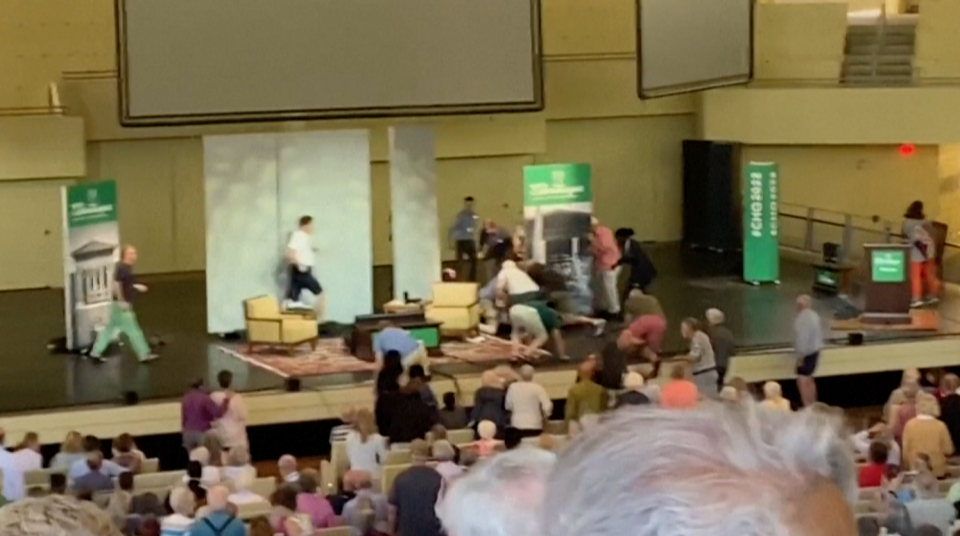
New York, United States | AFP |
British author Salman Rushdie, whose writings made him the target of Iranian death threats that forced him into hiding, was attacked on stage Friday in western New York state.
Video footage posted on social media showed people rushing to his aid after he was attacked at the event in Chautauqua County, with police confirming a stabbing while declining to immediately identify the victim.
“A most horrible event just happened at #chautauquainstitution – Salman Rushdie was attacked on stage at #chq2022. The amphitheater is evacuated,” one witness said on social media.
Chautauqua County Sheriff’s office said “we can confirm there was a stabbing,” without giving further details.
Rushdie’s condition was not immediately known.

The author, now 75, was propelled into the spotlight with his second novel “Midnight’s Children” in 1981, which won international praise and Britain’s prestigious Booker Prize for its portrayal of post-independence India.
But his 1988 book “The Satanic Verses” brought attention beyond his imagination when it sparked a fatwa, or religious decree, calling for his death by Iranian revolutionary leader Ayatollah Ruhollah Khomeini.
The novel was considered by some Muslims as disrespectful of the Prophet Mohammed.
Rushdie, who was born in India to non-practising Muslims and himself is an atheist, was forced to go underground as a bounty was put on his head — which remains today.
– A decade in hiding –
He was granted police protection by the government in Britain, where he was at school and where he made his home, following the murder or attempted murder of his translators and publishers.
He spent nearly a decade in hiding, moving houses repeatedly and being unable to tell his children where he lived.
Rushdie only began to emerge from his life on the run in the late 1990s after Iran in 1998 said it would not support his assassination.
Now living in New York, he is an advocate of freedom of speech, notably launching a strong defence of French satirical magazine Charlie Hebdo after its staff were gunned down by Islamists in Paris in 2015.
The magazine had published drawings of Mohammed that drew furious reactions from Muslims worldwide.
Threats and boycotts continue against literary events that Rushdie attends, and his knighthood in 2007 sparked protests in Iran and Pakistan, where a government minister said the honour justified suicide bombings.
The fatwa failed to stifle Rushdie’s writing, however, and inspired his memoir “Joseph Anton”, named after his alias while in hiding and written in the third person.
“Midnight’s Children”, which runs to more than 600 pages, has been adapted for the stage and silver screen, and his books have been translated into more than 40 languages.
© Agence France-Presse








